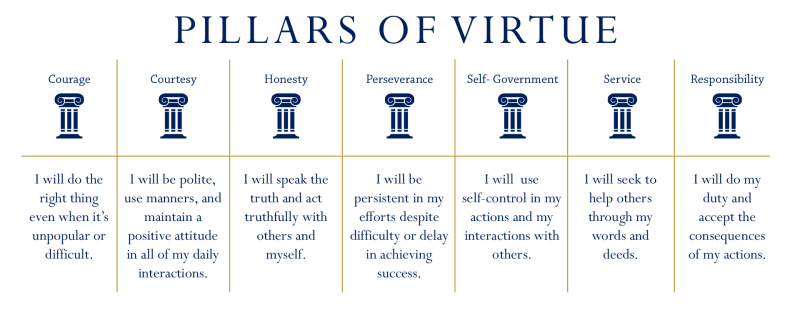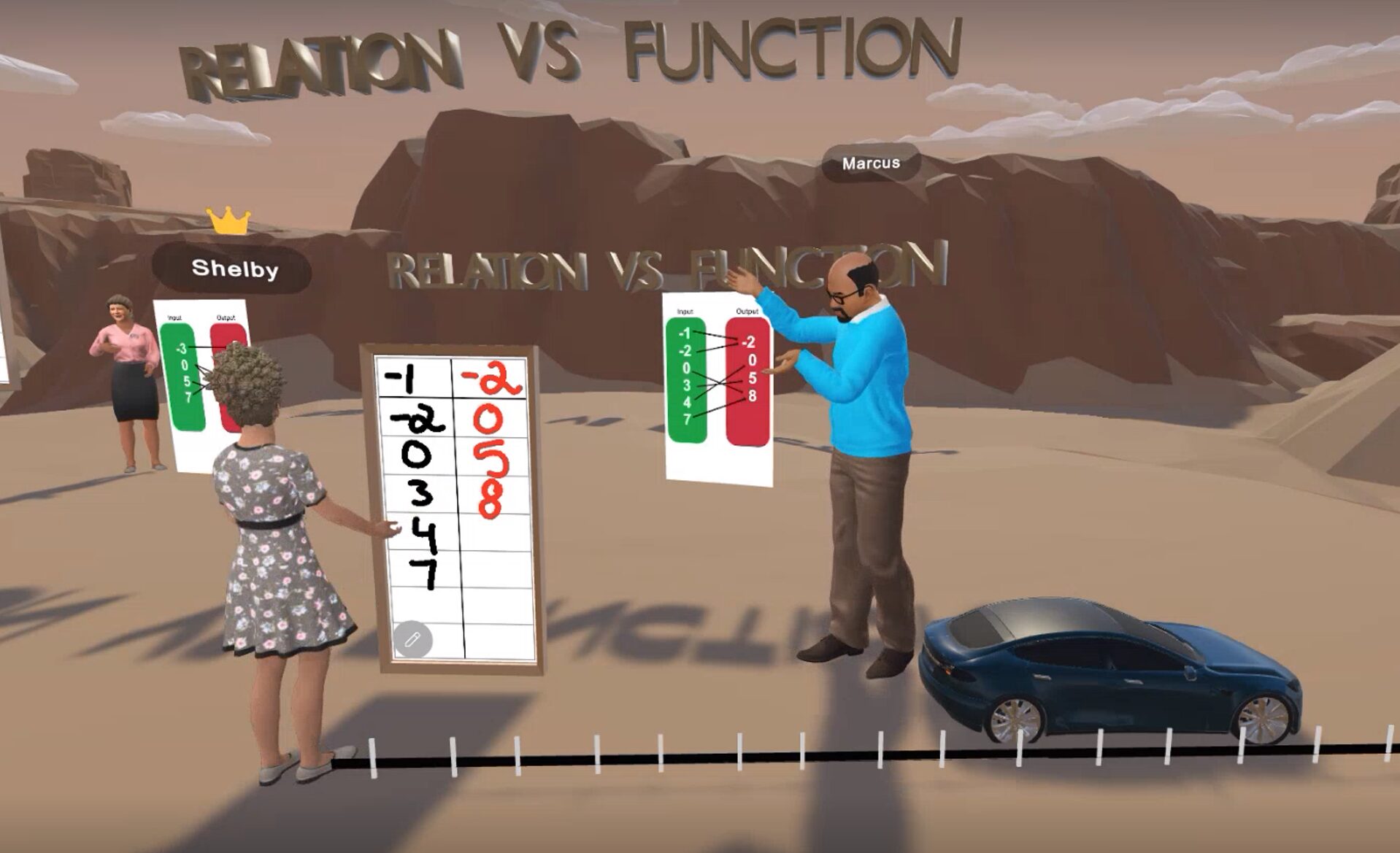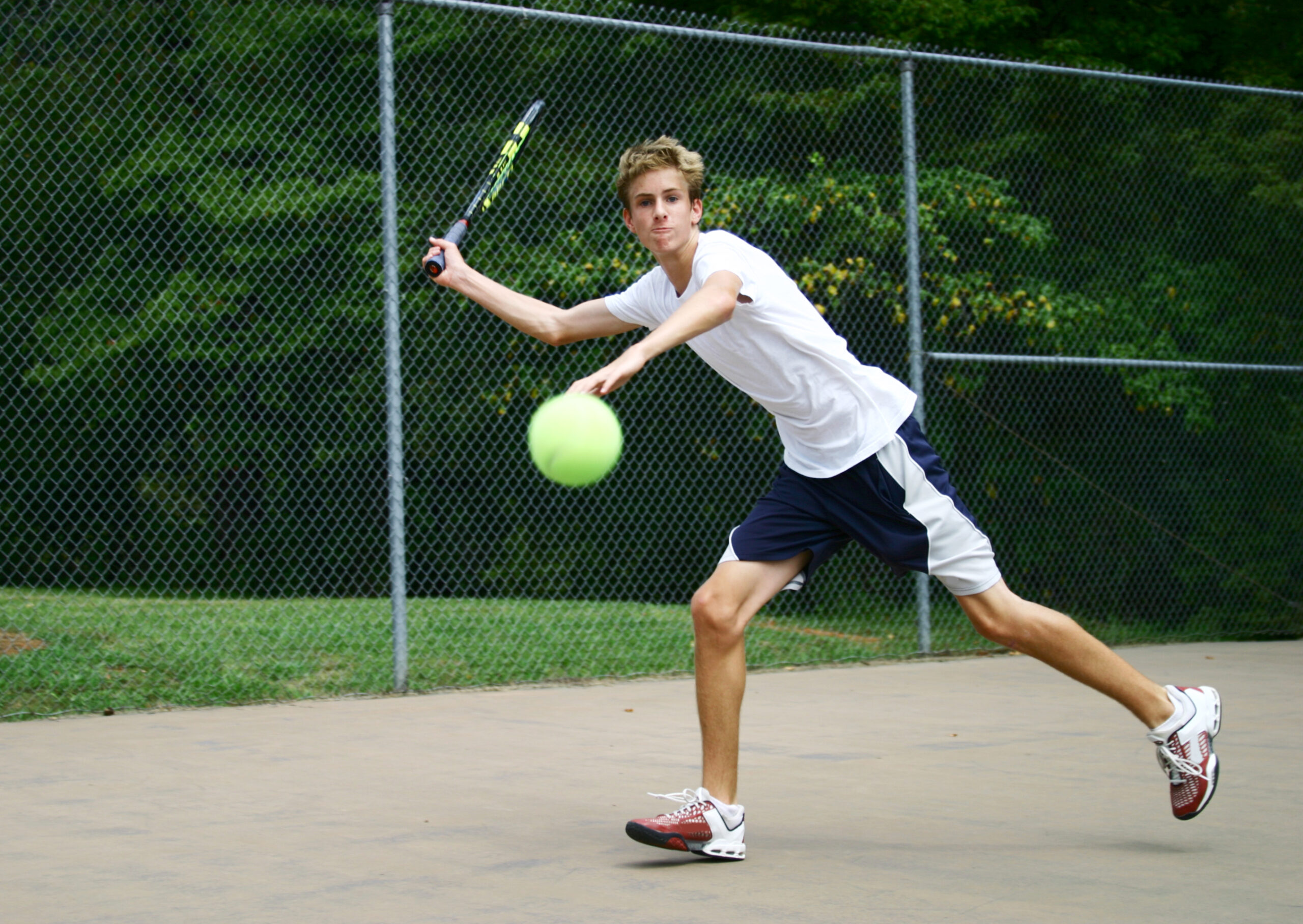Pillars of Virtue – Self Government
By Dr. Dan Sturdevant

“…our children must learn to face full responsibility for their actions, to make their own choices and cope with the results… the whole democratic system depends upon it. For our system is founded on self-government, which is untenable if the individuals who make up the system are unable to govern themselves.” – Eleanor Roosevelt
Hello Parents, Scholars, Friends, and Optima Family!
This post will be the fifth in a series of 7, highlighting our 7 pillars of virtue at Optima Classical Academy, and indeed throughout all our Optima Foundation schools. Specifically, we will be discussing the virtue of self-government, which is not a virtue we talk much about in modern society, and one that is often at odds with our tendency towards instant gratification. That being said, self-government is highlighted as one of our pillars of virtue because without practicing it, the other virtues we want for our scholars will never be fully realized.
Eleanor Roosevelt, our longest serving First Lady, offers the perspective above regarding self-government, and warns of the consequences of ignoring it as a virtue. Her words may be a little startling in contrast to much of our society today, where we speak of helicopter parenting (or even snow-plow parenting, where all obstacles are removed before children can encounter them) and participation trophies with varying degrees of disdain or reverence. It seems we are divided on the issue of how to instruct, foster, and measure self-government, or whether it is something kids need to learn at all! To Roosevelt however, it was imperative that children learn to face consequences, take responsibility, and use those incentives – positive or negative – to learn to govern themselves well, and through that, to govern the nation when it became their turn.
At OCA, we are of a similar mind, and we hold self-government in high regard and work to model it, foster it, and recognize it among our scholars. It is why we study great examples from history like Eleanor’s cousin by marriage Teddy – who in many ways exemplified modern self-government with his academic and fitness routines. It is also why we read great books, to inhabit characters such as D’Artagnan from Dumas’ Three Musketeers whose disciple and drive propel him to not only realize his own dream, but to serve and benefit myriad others as well.
We want scholars to understand that self-government is not as simple as delaying gratification or denying indulgences, though those experiences may be part of the process to self-government. Self-government, in the classical view is not a dearth of opportunity or missed experiences, but in fact, it is the gateway to a rich freedom that is achieved through applying one’s time, effort, and knowledge gleaned from mistakes and consequences (both good and bad) to focus and reveal what is truly important and valuable to them, and what will allow them serve and benefit their families, their society, and themselves.
A modern, practical application of this theme is found in the bestselling book written by former Navy Seal Jocko Willink, called “Discipline Equals Freedom: Field Manual.” In the book, Willink shares his experiences and strategies for mastering the virtue of self-government through various lenses, with the thesis that it is only once that mastery has been achieved that you are truly free to put full time, effort, and focus into other areas of your life. In other words, it is only once you have mastered yourself that you are free to master anything else.
We are already seeing the benefits of our virtue-centered curriculum at OCA, and we are grateful for the partnership of families and trust in us to deliver their scholars an excellent education. If raising a virtuous, productive, and prepared scholar sounds appealing, we’d love to partner with you too!



